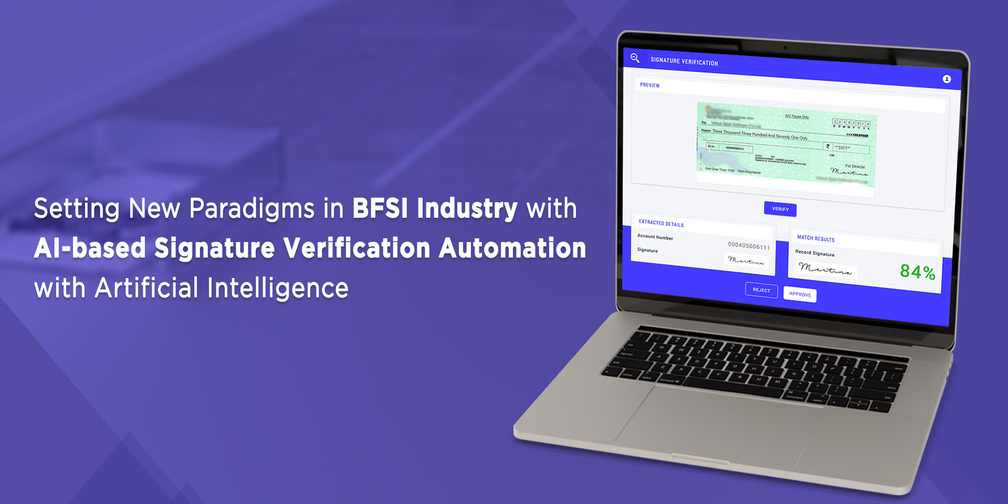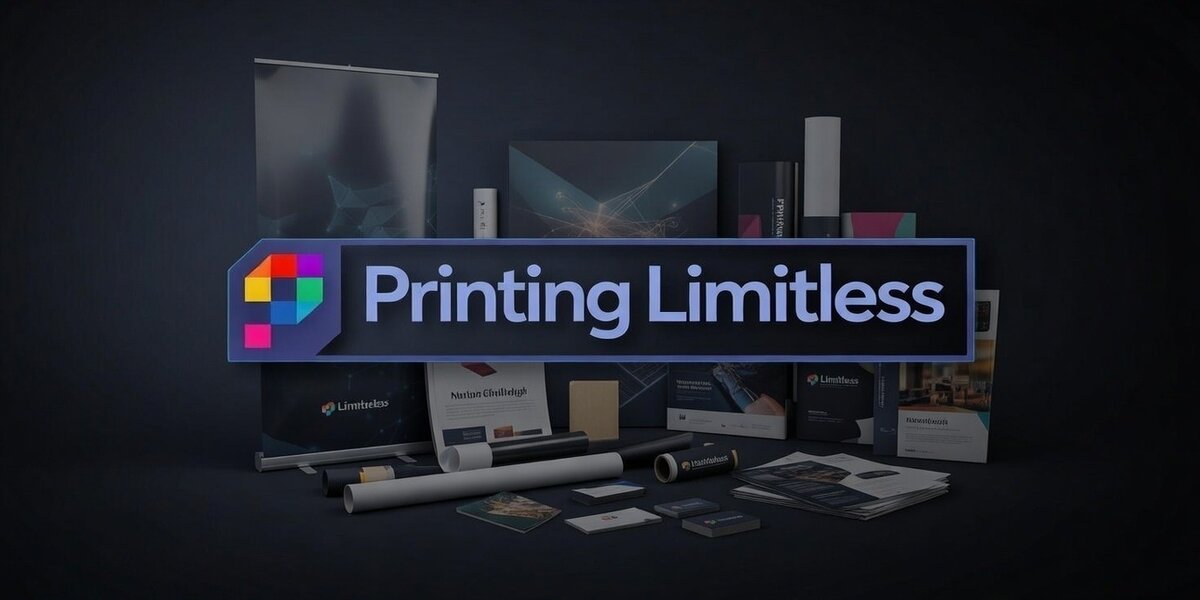Harnessing Artificial Intelligence for Eliminating Frauds within BFSI through Signature Verification
Artificial Intelligence | 05-11-2019 | Namee Jani

Banking and Financial Services Industry (BFSI) has a critical role to play in the modern economy. The segment is the gate bearer and protector of wealth and financial assets of the entire population.
With the advancements in technology, the BFSI sector has started facing unique challenges associated with the verification of individuals accessing funds. At the same time, banking organizations are increasingly investing in technologies and solutions that enhance their agility towards vulnerabilities and frauds.
Signature verification is an important process within the entire financial industry. Despite the increased usage of biometric verifications, human civilization relies heavily on wet ink signatures for identifying and verifying a person. Today, Artificial Intelligence, Machine Learning and Neural Networks are helping banks improve their verification capabilities and become more diligent in their routine processes.
Uniqueness of Personal Signatures
As mentioned above, signatures are still an important part of the entire financial ecosystem. They are required to conduct a lot of financial activities within the BFSI sector. Organizations rely on the signature verification process to remit funds, clear cheques, process transactions and a lot more.
And despite the increased use of biometric systems, it seems we are a long way to eliminate traditional signatures from legal documents and the financial industry.
The reason a signature has relied upon so much is that it is unique to every individual. Signatures define one’s personality and through a structured process, banks and financial institutes verify if a document is signed by a particular individual.
Even though a single person can have different variations of his/her signature, the variability makes signatures even more reliable as banks keep a record of variations too. Genuine signatures are verified by matching the recorded signatures with the signed document.
Traditionally, a manual process, today signature verification in banks and financial institutes is highly compartmentalized and makes use of advanced technology like artificial intelligence. AI-based deep learning tools evaluate a document to check if the document is signed by the authorized person or not.
Signature Verification via Artificial Intelligence
There are several ways to train a computer or machine to imitate human intelligence. For the BFSI industry, this particularly means that technology can do tasks that were conventionally given to human experts.
Using the computing capabilities of the machine and the innovative machine learning (ML) approach, specific modules can be developed for building a signature verification solution. This would basically use the following technologies and tools:
• Deep Learning Artificial Intelligence
• Neural Networks
• Machine Learning Algorithms
• Training Database with Signature Segmentation
Signature verification AI can compare the signature image to the recorded signature for verification and authenticity. Using a confidence score-based system, an AI-based solution can determine if a signature is real or forged.
The AI-engine can be trained using machine learning algorithms that involve training the system using person-independent or person-dependent techniques. Generally special, personal dependent learning techniques are known to give better results.
With the help of such a trained system, the AI-signature verification tool can analyze a particular signature, compare it to the presented document and find out similarities between the two. Using an AI-based solution, the entire process can be streamlined and automated to minimize the monotony and chances of error due to human negligence.
Discover How AI-based Signature Verification Solution Works in BFSI Industry
How Does Technology Helps in Preventing Frauds & Forgeries?
Human intelligence, despite being the most advanced, is susceptible to errors due to fatigue, negligence or any external factors. Also, relying on humans is not cost-effective, always. This means that banks depend on human staff to detect forgery and maintain the authenticity of high-risk, high-value transactions. Moreover, signature forgery and falsification is on the rise in recent years.
If an organization makes use of technology, the risk of processing fraudulent transactions gets minimized to a great extent. AI-powered signature verification systems can help BFSI organizations in detecting different kinds of forgeries, namely:
• Random Signature Forgery: When a person doesn’t try to match the name or style of the genuine signature.
• Blind Signature Forgery: When the signature tries to match the name of the genuine signature but doesn’t match the style.
• Skilled Signature Forgery: When the forger tries to match both the name and the style of the genuine signature. This is the hardest one to detect humans.
Why AI does a better job than human counterparts?
Signature verification AI can reduce the chances of fraud due to forged signature. With the increasing reliance on signature-based systems, banks need a resilient system that can detect forgeries in real-time on a daily basis. As the volumes of papers and transactions increase, it is important to automate the fraud detection system, which is not possible using the human-based system.
AI-based systems can serve as a better solution when compared to human counterparts as it can handle large volumes and can be scaled as per the requirement. Once trained, the system can deal with different kinds of forgeries and streamline the entire fraud detection system.
In fact, studies have found signature verification systems to be more consistent, accurate and efficient in handling difficult forgeries in real-time. Humans, when presented with more than two or three reference signs may get confused which is not the case with an AI-based system.
Possible Future Implications of Signature Verification Technology
Signature verification automation is the need of the hour for efficiency in the BFSI industry. There are minimal chances of errors due to negligence and a large volume of transactions can be handled quickly using an automated system.
The future of the signature verification system is bright. As banks, financial institutes, legal systems and other signature-based industries realize the need for deeper analysis, AI-based signature verification techniques will bloom.
Wrapping Up
As we transition into a challenging era with sophisticated vulnerabilities, automation in critical sectors like banking and finance will play a major role.
AI-based Signature verification tools will help stakeholders, particularly the managers and the organizations, to mitigate risks and deal with the challenges sternly. An AI development company can help organizations build robust AI signature verification systems according to their specific needs. If frauds have to be dealt with, AI-based automation is the only way to go in a world where millions of transactions take place every second.


.jpg)

.jpg)
.jpg)
.jpg)
.jpg)
.jpg)

